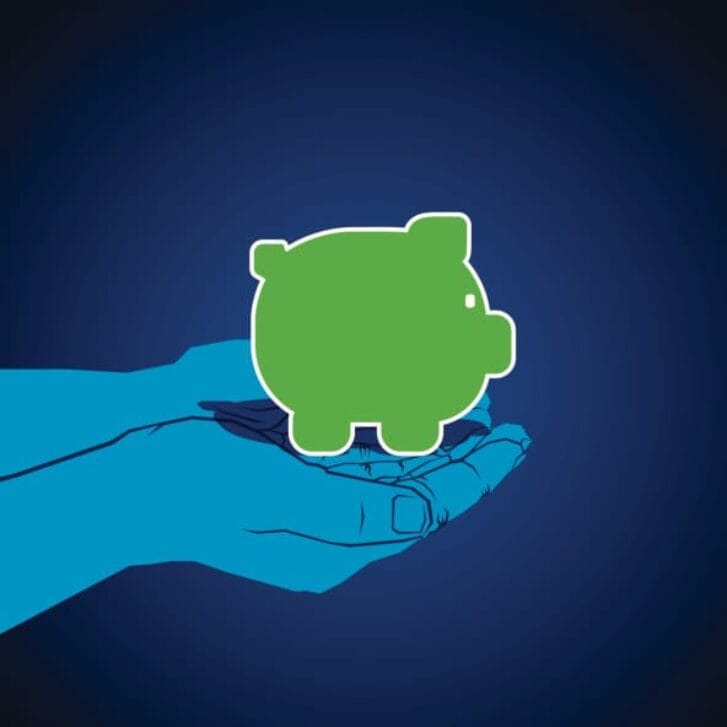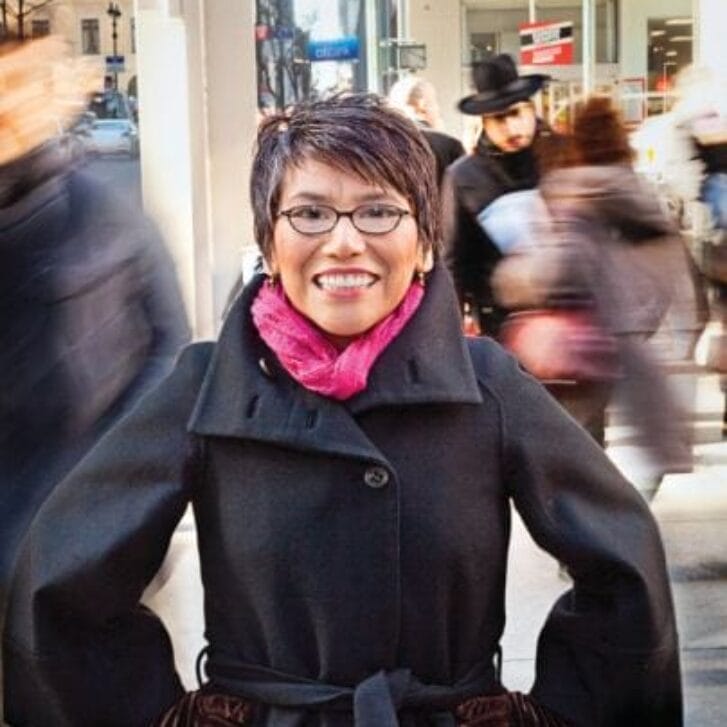Noreena Hertz, WG’91, took her first bows on the global media stage in 2001. It was the year of her first big commercial hit, the book The Silent Takeover, and she was labeled a leading young thinker and the mouthpiece for the anti-globalization movement. As it turns out, she was never against international capitalism; she is merely a master prognosticator. In her book, she proved to be on the leading edge of understanding that multinational corporations needed to focus on sustainability and social responsibility, or be made to by the public and regulators. In her second book, I.O.U., released in 2005, she forecasted the global debt crisis. Her latest tome, Eyes Wide Open, released last year, explores the blessing and curse of 21st century information overload, and the importance of better decision-making on a personal, public and business level.
She calls herself an “ideas entrepreneur.” Formally, she has a professorship at University College London and recently joined the board of Warner Music Group.
Fame as an international thinker has led her over the last 15 years to rub shoulders—and advise and work with—some of the world’s biggest global leaders, politicians and CEO s, as well as rock stars like Bono, who came to her for help to create the RED charity campaign.
And it all started in part with Wharton. A faculty member asked her to join him in the summer of 1991 to help launch the first stock exchange in Leningrad, Russia. The “stock exchange” turned out to be an old gym where locals “exchanged” tobacco and funeral urns, but it was an experience that led her on the path to becoming a global economics intellectual. That is where Wharton Magazine’s Q&A with Hertz begins.
WHARTON MAGAZINE: What was Russia like in 1991?
NOREENA HERTZ: It was an amazing time because it was Gorbachev, perestroika, glasnost, and things were really shifting. It was the summer that everything changed in Russia. It was the summer that Yeltsin came into power.
I had, thanks to that job [with the Wharton professor], met these economists hanging around this up-and-coming politician, Boris Yeltsin. I’d been helping them figure out how a market economy works. So when Yeltsin got into power, it really felt like I should stay in Russia. Then I got hired by the IFC, which is part of the World Bank, to help design Russia’s privatization program.
WM: You’ve mentioned another Wharton connection to your work?
HERTZ: Interestingly, it was actually with regards to my new book. At Wharton, one of my favorite classes was my negotiations class. I had a fantastic professor called Marc Knez, who was a decision science, game theory-type person. We basically did every week simulated negotiations, and you were then ranked. I did best in the whole year. I beat all these guys, investment bankers and such like, this sweet English girl.
That’s when I first learned about concepts like framing, cognitive biases and some of the ideas that I come back to now in my latest work around how easily influenced we are, how our brains can be manipulated, how we can be persuaded.
Listen to an excerpt of our interview with Hertz in which she explains why global leaders seek her consultation during decision-making.
WM: Since your first book, an anti-globalist label has stuck to you. Fair?
HERTZ: I’m not anti-capitalist at all. In fact, I grew up in a home of self-made entrepreneurs who had fashion factories and retail outlets, and I love the spirit of business and what it can achieve. And their entrepreneurialism is something that I uphold.
WM: How so? Did you consider becoming an entrepreneur?
HERTZ: Well, I am an academic, and I have a professorship, but I think I have within that space led a pretty entrepreneurial life. I combine my academia with high-level advisory work, with corporate board service, with television, with corporate speaking, with book writing. So, actually, I think I have created a whole host of businesses around what I do, which is not so typical, especially not in England. In America I think it’s maybe more common, but in England it’s really not common at all.
WM: You have gotten big predictions right—corporate social responsibility, the debt crisis—what do you see on the horizon now?
HERTZ: Well, focusing on Europe, I think the road looks still pretty rocky ahead. The sense that we’ve definitely turned the corner is premature, just because there are quite a few potential flashpoints that, if any of them really were to flare up, could derail any recovery that we so far have. All of this may be out of date by the summer, but at the moment Ukraine is looking quite perilous as of course does Iraq—whilst the rise of nationalism at the recent European elections bodes ill for the future of Europe.
We also in Europe have very high levels of youth unemployment in countries like Spain, Italy and Greece. In Spain and Greece, over 50 percent of under-25s are unemployed. It’s a ticking time bomb we need to address.
With regards to technology, I believe that technological disruption will continue at a rapid pace. Cybersecurity will become an even greater threat. And consumers will increasingly demand a fair exchange for their data. I think we’ll also see more co-creation of products and ideas not only by companies and customers but also between competitors, And more co-creation of information.
A key feature of our time is that we are all now operating in a supertransparent environment—this is a world in which there is no off-the-record, in which the private is the public. The battle between privacy and transparency is likely to escalate over coming months.
WM: What are you working on now?
HERTZ: One of the things I was really interested in and still am is: How can we use social media to improve forecasts and predictions? One project I initiated was I put together a team of people, computer scientists and social scientists, and we looked at whether we could predict the winner of the X-Factor, which is a reality singing contest, by mining Twitter data, tweets and Facebook posts and likes. We did really well. Around the shows, the computer model would process hundreds of thousands of tweets at once, and [on] 10 out of 12 weeks, we called it right and completely beat the bookies. The right data, interrogated correctly, can yield very interesting new insights.


























